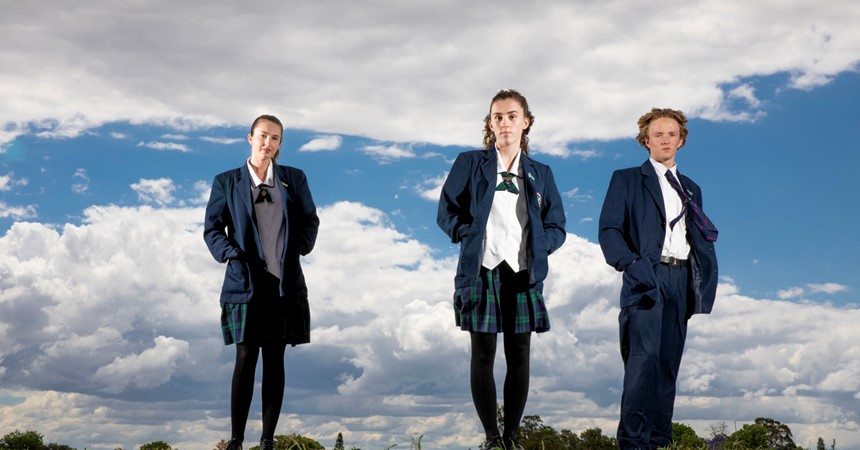“The climate situation is getting worse but we’re not doing much about it,” the Year 11 student at All Saints’ College Maitland said. “So much money is still going into fossil fuels – just look at the Adani proposal.”
As one of two environmental leaders at All Saints, Ben says he’s more annoyed about climate change inaction than he is anxious about a future catastrophe but understands why “eco-anxiety” is increasing.
In September, the Australian Psychological Society (APS) threw its support behind the School Strike for Climate rally after identifying “climate distress” as a growing mental health concern in Australia.
“Psychologists are seeing an increasing number of clients who say their concerns about climate change and the future of the planet are having a negative impact on their mental health, including increased depression and anxiety,” APS president Ros Knight said. “Adults should be aware that children are feeling these emotions about climate change as keenly as we are.”
Mackenzie Smith, also in Year 11 at All Saints’ Maitland, believes the perceived danger of climate change has made young people more susceptible to mental health issues. She attributes certain media coverage of global warming to the increased angst among youth.
“There is a perception that drastic change needs to be made within the next 10 years before our environmental problems become irreversible,” Mackenzie said. “This pressure is contributing to mental health issues in the youth of today.”
Recent survey figures from ReachOut, an online youth mental health organisation, and Student Edge, the largest member-based organisation of high school and tertiary students in Australia, say up to 80 per cent of students report being somewhat or very anxious about climate change. The survey data, which is not nationally representative, was collected from 1595 high school and university students aged 14-23.
Up to 82 per cent of respondents agreed with the statement "climate change is going to diminish my quality of life in the future"; while 77 per cent said they did not believe their generation's concerns about climate change were being suitably addressed.
The supposed lack of acknowledgement, or action, by politicians is a view with which Ben strongly identifies. “I’m annoyed because we have all seen the facts but we still aren’t seeing enough investment in renewables,” Ben said. “If I had the opportunity I’d ask Prime Minister Morrison to consider how future generations will look back on him if he doesn’t do more to address climate change while he still can.”
CatholicCare psychologist Chloe Marshall said it was important to validate how young people feel and help them cope with distress while encouraging them to focus on what they can do to make a difference. “I think one of the problems with the climate change debate is that people can tend to underestimate their own capacity to create change and take steps to alleviate the problem themselves,” Ms Marshall said.
“While world leaders have a significant role to play in creating significant change, it is not up to one person but all of us to make a difference. We can each be responsible for how we care for the planet.”
For Ben, who attended the Newcastle School Strike 4 Climate earlier this year, concentrating on what he can do to protect the environment helps him maintain a positive attitude about the future. “Our school environmental team did a lot of tree planting earlier this year and we’re planning fundraisers for outside organisations that plant trees as well,” Ben said. “I’m also working on increasing the number of recycling bins we have and I’m very passionate about animals and helping prevent loss of species.”
As for students who may be experiencing “eco-anxiety”, Ben says joining the environmental team, which is open to everyone, is a great way to alleviate concerns.
“We discuss climate change at our fortnightly meetings — the group is very supportive when people are feeling anxious,” he said. “Climate change now plays a big part in school life and I think it’s best to always try and maintain an optimistic outlook.”




























































































